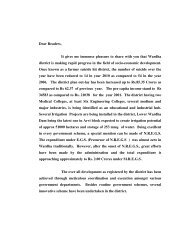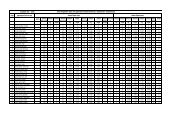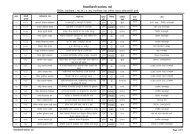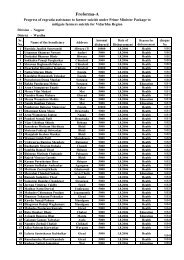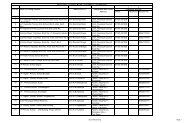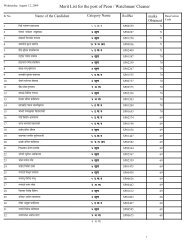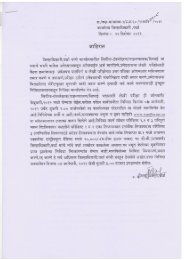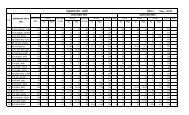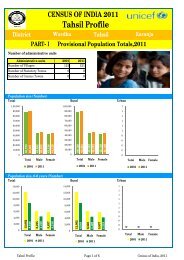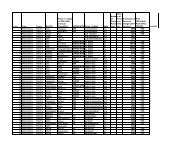You also want an ePaper? Increase the reach of your titles
YUMPU automatically turns print PDFs into web optimized ePapers that Google loves.
o Heat exhaustion - Typically occurs when people exercise heavily or works in a hot,<br />
humid place where body fluids are lost through heavy sweating. Blood flow to the<br />
skin increases, causing blood flow to decrease to the vital organs. This results in a<br />
form of mild shock. If not treated, the victim's condition will worsen. Body<br />
temperature will keep rising and the victim may suffer heat stroke.<br />
o Heat stroke - Heat stroke is life-threatening. The victim's temperature control<br />
system, which produces sweating to cool the body, stops working. The body<br />
temperature can rise so high that brain damage and death may result if the body is<br />
not cooled quickly.<br />
o Sun stroke - Another term for heat stroke.<br />
b) Consider the following preparedness measures for extreme heat.<br />
• Install air cooler/air conditioners snugly, insulate if necessary.<br />
• Close any floor heat registers nearby and uses a circulating or box fan to spread<br />
cool air.<br />
• Check air-conditioning ducts for proper insulation.<br />
• Install temporary reflectors, such as aluminum foil covered cardboard, to reflect<br />
heat back outside<br />
• Cover windows that receive morning or afternoon sun with drapes, shades,<br />
awnings or louvers. Outdoor awnings or louvers can reduce the heat that enters a<br />
home by up to 80 percent.<br />
During extreme heat<br />
• Stay indoors as much as possible.<br />
• If air conditioning is not available, stay on the lowest floor out of the sunshine.<br />
• Remember that electric fans do not cool; they just blow hot air around.<br />
• Eat well-balanced, light and regular meals. Avoid using salt tablets unless directed<br />
to do so by a physician.<br />
• Drink plenty of water regularly even if you do not feel thirsty.<br />
• Persons who have epilepsy or heart, kidney, or liver disease, are on fluid-restrictive<br />
diets, or have a problem with fluid retention should consult a doctor before<br />
increasing liquid intake.<br />
• Limit intake of alcoholic beverages. Although beer and alcoholic beverages appear<br />
to satisfy thirst, they actually cause further body dehydration.<br />
• Never leave children or pets alone in closed vehicles.<br />
• Dress in loose-fitting clothes that cover as much skin as possible. Lightweight,<br />
light-colored clothing reflects heat and sunlight and helps maintain normal body<br />
temperature.<br />
• Protect face and head by wearing a wide-brimmed hat.<br />
• Avoid too much sunshine. Sunburn slows the skin's ability to cool itself. Use a<br />
sunscreen lotion with a high SPF (sun protection factor) rating 15 or greater.<br />
• Avoid strenuous work during the warmest part of the day. Use a buddy system<br />
when working in extreme heat and take frequent breaks.<br />
• Spend at least two hours per day in an air-conditioned/air cooled place.<br />
56



